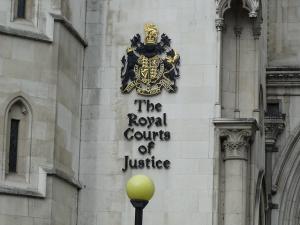



A recent court High Court ruling clarifies the position regarding the rules around Council Tax Exemption Class "B" and suggests that it will be very easy for charitable housing assocations or other charitable bodies to benefit from the exemption, regardless of the rent charged in most cases.
For the record, Exemption Class "B" reads as follows:
"a dwelling owned by a body established for charitable purposes only, which is unoccupied and has been so for a period of less than 6 months and was last occupied in furtherance of the objects of the charity"
An important part of the background is that prior to its abolition in April 2013, housing associations could simply have invoked the 6 month exemption offered by Class C for any unfurnished dwelling: previously there would have been little need to rely on the Class "B" exemption, other than for the rare furnished property (perhaps in supported housing). As the judge quaintly put it, "The repeal of Class C has caused Class B to be pulled into the sunlight" for those charitable housing associations able to claim it.
The case was heard by Justice Mostyn and involved vacancies following three tenancies granted by two different housing associations in three London Boroughs (for the details of the case refer to the full judgement in our Information Library Full Members only). The local authorities were appealing against a decision by Graham Zellick, President of the Valuation Tribunal.
What was at issue was the interpretation of the phrase "last occupied in furtherance of the objects of the charity" and in the background lurked the questions of how the previous tenant arrived there and the level of rent that might be charged in this era of "unaffordable" affordable rents.
Whereas Graham Zellick had apparently taken the view that by definition any tenancy granted by a charitable housing association would be of a "charitable" nature, the Judge on Appeal decided otherwise: there was a need for those claiming the exemption to provide a minimal level of evidence case-by-case and "inasmuch as the President
says otherwise his decision is not supported." He went on to rule that in two of the three cases, sufficient evidence had been provided, but not in the third. He also made it clear how simple it would be to create procedures that would meet the evidential requirement to claim the exemption: In my judgment a short written representation by the applicant (which might usefully be done on some kind of standard form) which addresses all four conditions directly and which states (a) that based on the material held by the applicant the conditions are met and (b) that the statement is true to the belief of the representor, should normally be enough. Students of the absurd, which most empty property practitioners necessarily are, might wish to reflect which of the three tenancies below were entitled to be regarded as meeting charitable objectives and which were not.
Elliott Brown picture is licensed under a Creative Commons Attribution 2.0 Generic License.
says otherwise his decision is not supported." He went on to rule that in two of the three cases, sufficient evidence had been provided, but not in the third. He also made it clear how simple it would be to create procedures that would meet the evidential requirement to claim the exemption: In my judgment a short written representation by the applicant (which might usefully be done on some kind of standard form) which addresses all four conditions directly and which states (a) that based on the material held by the applicant the conditions are met and (b) that the statement is true to the belief of the representor, should normally be enough. Students of the absurd, which most empty property practitioners necessarily are, might wish to reflect which of the three tenancies below were entitled to be regarded as meeting charitable objectives and which were not.
- 4-bedroom house, rent £154.53 per week, LB of Ealing
- 2-bedroom flat, let at a Fair Rent in 1990 at £25.86 per week plus £5.64 service charge, RB of Kensington and Chelsea (very complicated history here with transfers of tenancies and the like)
- 3-bedroom property, rent £420.00 per week (about £1800 per month), LB of Hammersmith and Fulham

Elliott Brown picture is licensed under a Creative Commons Attribution 2.0 Generic License.
